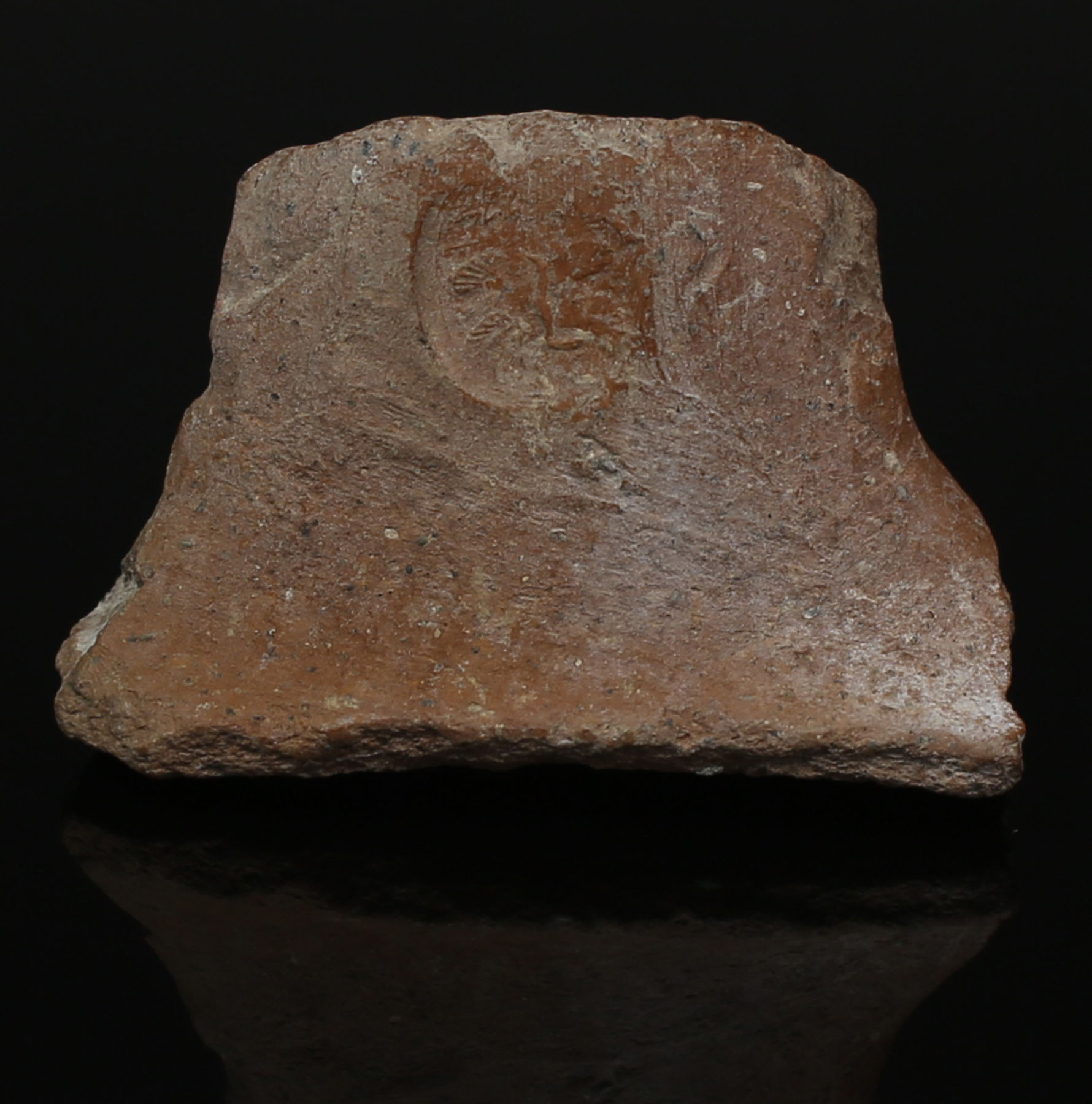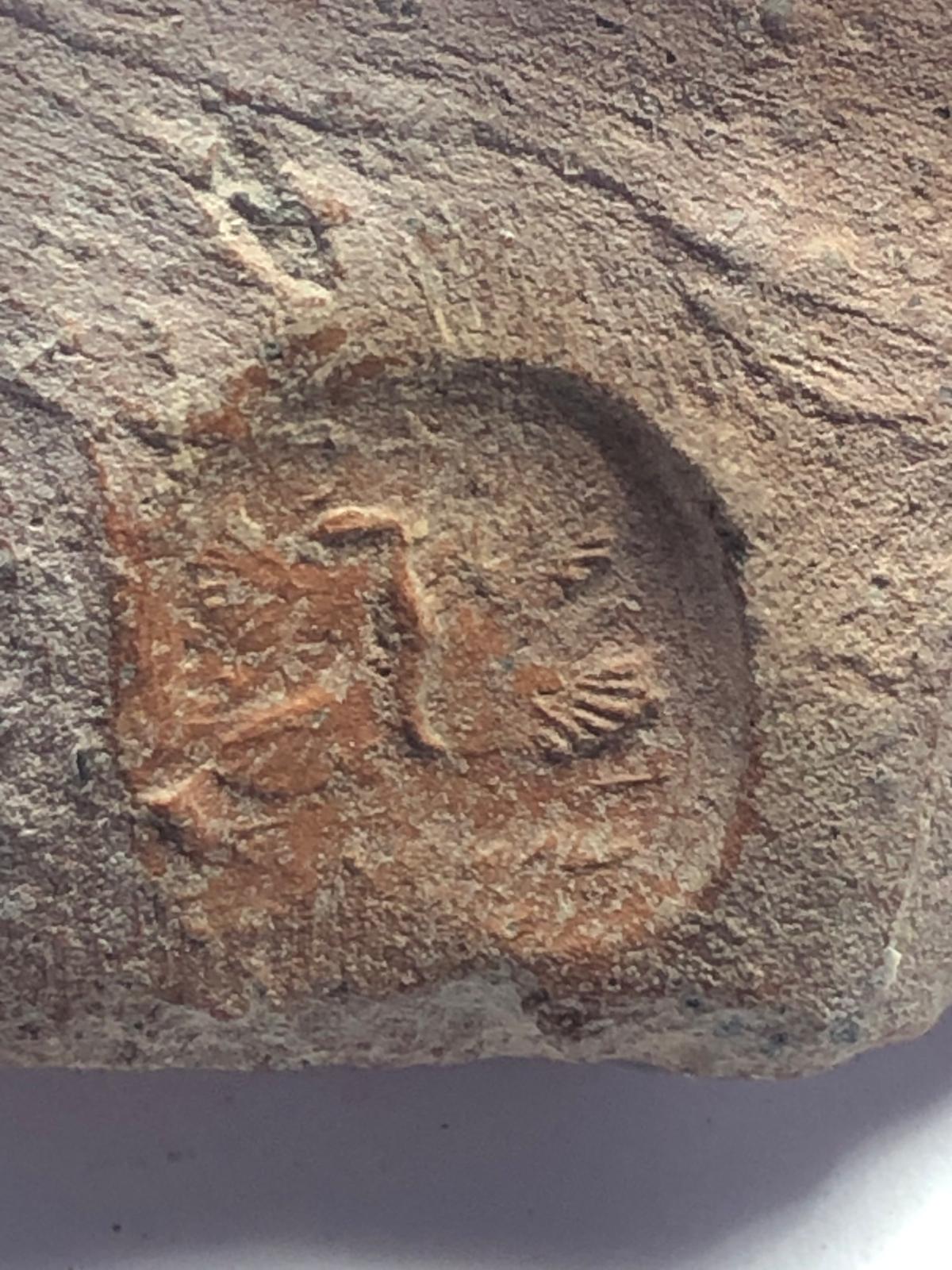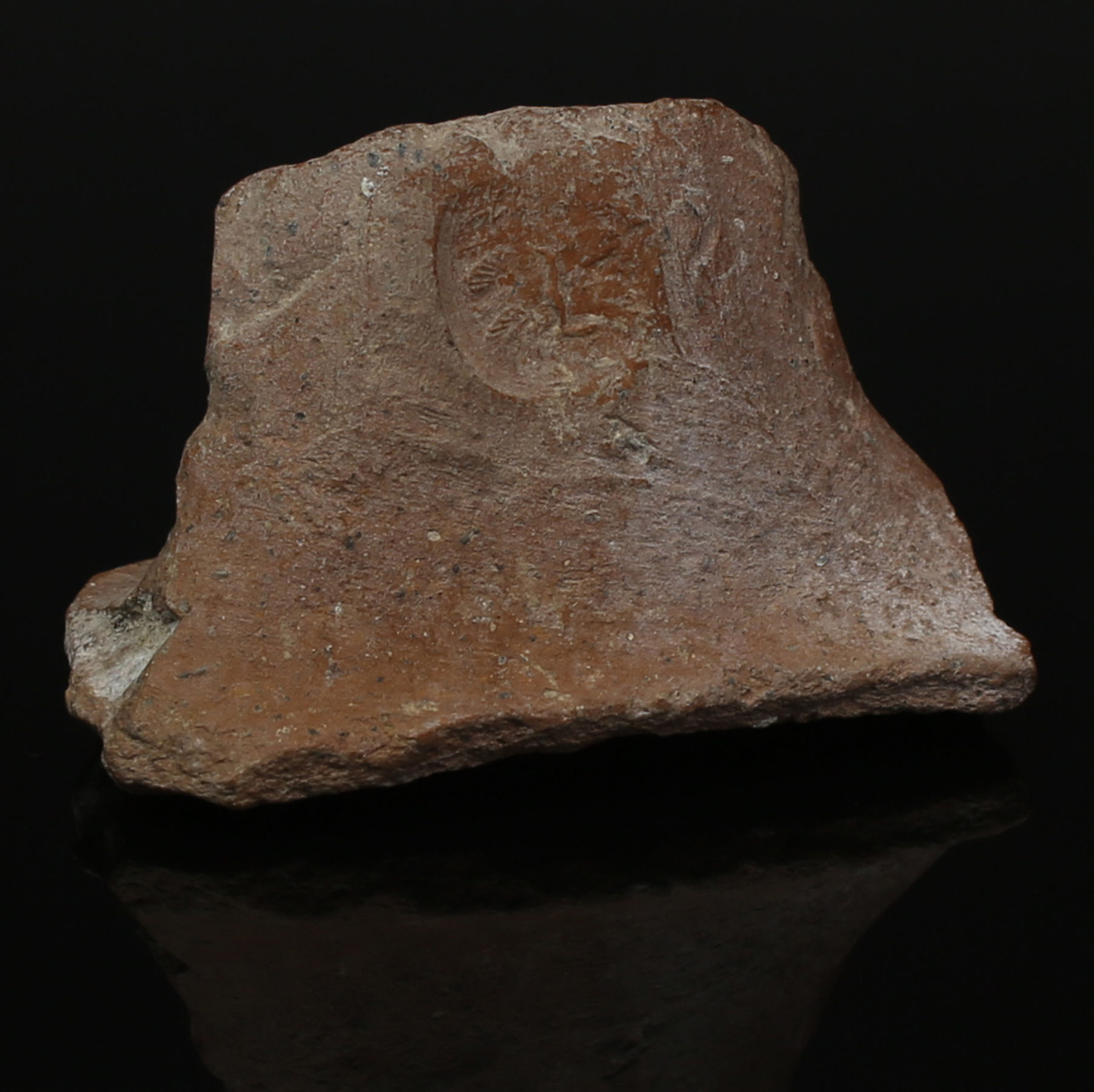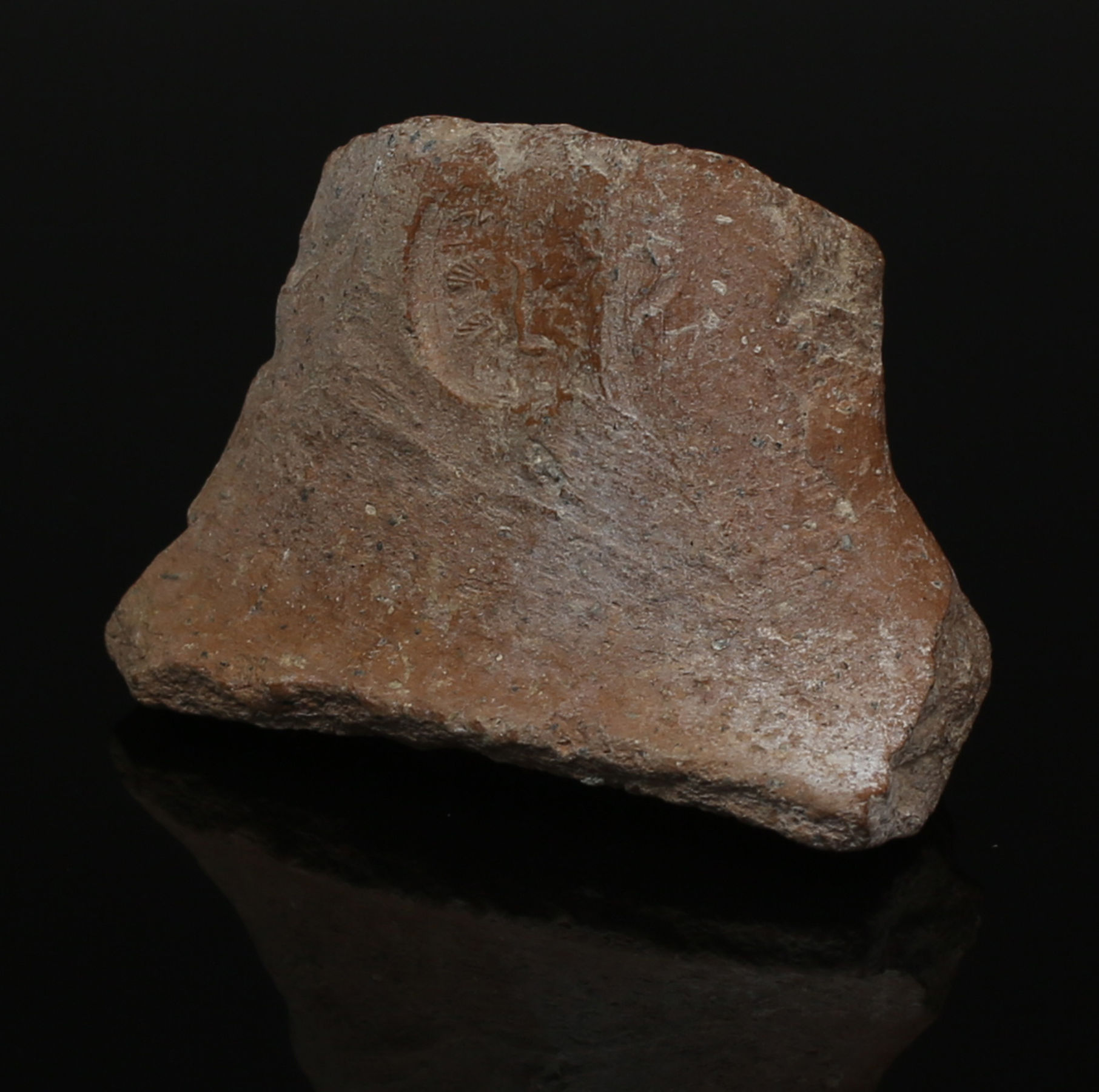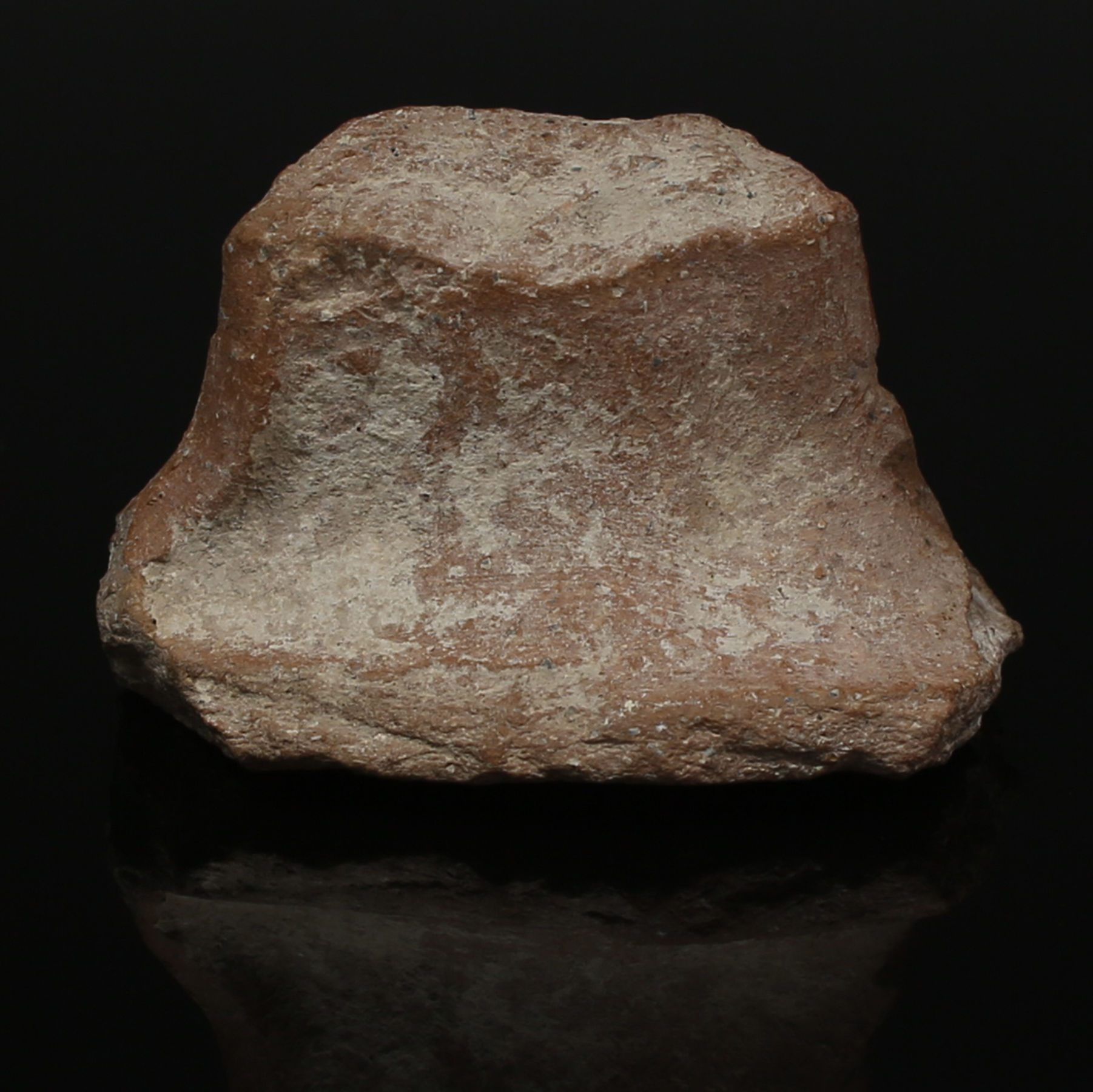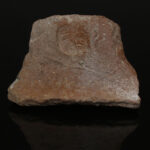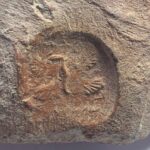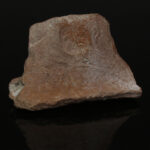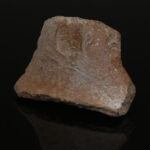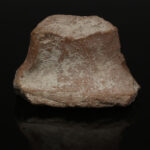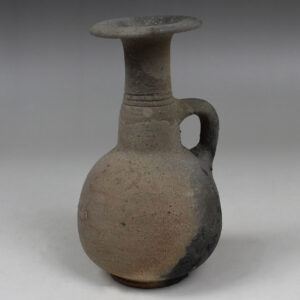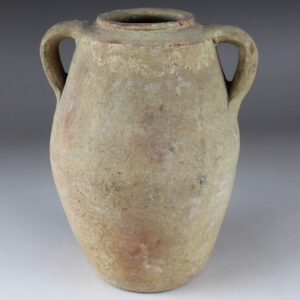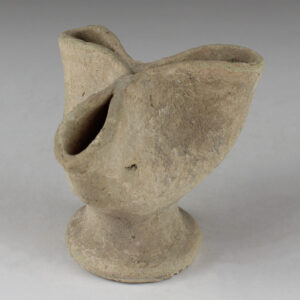Description
| ITEM | Jar handle of Samki, the son of Zephanyahu, official of king Hezekiah of Judah |
| MATERIAL | Pottery |
| CULTURE | Iron Age |
| PERIOD | 700 B.C |
| DIMENSIONS | 40 mm x 60 mm x 36 mm |
| CONDITION | Good condition |
| PROVENANCE | Ex Museum Exhibiton of the Arbeitsgruppe für Biblische Archäologie, Germany (Deaccession), Ex Shlomo Moussaieff private collection |
Samki, the son of Zephanyahu, was a figure mentioned in ancient Jewish and biblical texts, notably in the context of King Hezekiah’s reign in Judah during the 8th century BCE. While his name appears infrequently in primary sources, his role as a minister or official in the royal administration of King Hezekiah suggests a position of significant responsibility. He is mentioned in the context of the events surrounding the Assyrian siege of Jerusalem in 701 BCE, a critical moment in Judah’s history. As a high-ranking minister, Samki would have likely been involved in the political, military, and administrative affairs of the kingdom, particularly during this period of intense external threat.
The historical and biblical records focus primarily on the reign of King Hezekiah, who is known for his religious reforms and for resisting the Assyrian king Sennacherib’s invasion of Judah. Samki, as a royal minister, would have been part of the inner circle of Hezekiah’s government, overseeing various aspects of governance. The Bible mentions various officials during this time, though Samki’s specific duties or actions are not detailed in great depth. Given the turmoil of the Assyrian threat, it is likely that Samki’s role involved managing the kingdom’s defenses, assisting with diplomatic negotiations, or helping organize the resources needed for the defense of Jerusalem.
Biblical references to Samki are brief, but they contribute to the broader understanding of the complex network of officials and ministers who supported King Hezekiah during a time of national crisis. In the biblical account, Judah’s survival during the Assyrian siege is portrayed as a result of Hezekiah’s faith and strategic planning, and officials like Samki would have played a key role in the execution of royal strategies. The absence of more detailed information about Samki suggests that, while he was likely an important figure in Hezekiah’s court, his legacy was overshadowed by the more prominent religious and military figures of the time, such as the prophet Isaiah and the king himself. Nevertheless, Samki’s inclusion in the historical record serves as a testament to the intricate administrative structure that existed in the kingdom of Judah during this pivotal period.


